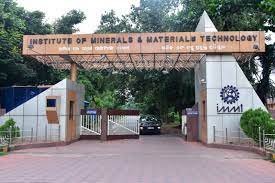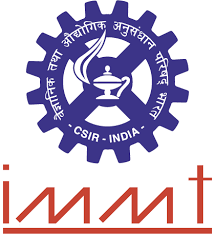M.Tech. in Mineral Engineering offers expertise in mining, sustainability, research, global opportunities, and environmental stewardship.
Future Scope & Benefits: M.Tech. in Mineral Engineering Course
Pursuing an M.Tech. in Mineral Engineering opens up a world of opportunities in the mining and mineral processing industry. This specialized program equips graduates with the knowledge and skills required to excel in various roles related to mineral exploration, extraction, processing, and management. In this comprehensive guide, we will explore the future scope and numerous benefits of pursuing an M.Tech. in Mineral Engineering.
Future Scope: M.Tech. in Mineral Engineering Course
Mineral Exploration and Mining: Graduates are well-prepared for careers in mineral exploration and mining companies. They can contribute to the discovery of new mineral deposits and the development of sustainable mining practices.
Mineral Processing: Mineral engineers play a crucial role in the design and optimization of mineral processing plants. They are in demand for improving efficiency and reducing environmental impacts.
Resource Management: As natural resources become scarcer, experts in mineral engineering are needed to manage mineral reserves efficiently and ensure their responsible extraction.
Sustainable Mining Practices: The industry is increasingly focused on sustainability. Graduates can work on environmentally friendly mining techniques and waste management strategies.
Consulting Services: Many graduates offer consulting services to mining companies, helping them solve complex engineering and operational challenges.
Research and Development: Research positions in academia and research institutions allow graduates to explore advanced concepts in mineral engineering and contribute to scientific advancements.
Environmental Compliance: Environmental engineers specializing in mineral engineering help mining companies comply with environmental regulations and reduce their ecological footprint.
Government and Regulatory Bodies: Graduates can work for government agencies and regulatory bodies, shaping policies and standards for the mining industry.
Mineral Economics: Experts in mineral economics analyze the financial aspects of mining projects, including feasibility studies and cost analysis.
Health and Safety: Occupational health and safety professionals ensure that mining operations adhere to safety regulations, protecting workers and minimizing accidents.
International Opportunities: The skills acquired are transferable to international mining projects, offering opportunities for global employment.
Benefits: M.Tech. in Mineral Engineering
Specialized Expertise: The program provides graduates with specialized knowledge and skills in mineral engineering, making them valuable experts in a niche field.
High Demand: The mining and mineral processing industry consistently demands skilled professionals to develop and maintain efficient and sustainable mining practices.
Career Advancement: Graduates often enjoy accelerated career progression in the mining sector due to their specialized qualifications.
Resource Management: Graduates contribute to the responsible management of natural resources, ensuring their long-term availability.
Environmental Stewardship: Mineral engineers play a critical role in minimizing the environmental impact of mining activities.
Research Opportunities: Opportunities for research and innovation in mineral engineering are abundant, allowing graduates to work on projects that advance the industry.
Financial Rewards: Careers in mining engineering often come with competitive salaries and benefits.
Global Impact: Graduates may have the opportunity to work on projects with global implications, contributing to sustainable resource development worldwide.
Interdisciplinary Collaboration: Working in the mining industry often involves collaborating with experts from various fields, fostering interdisciplinary problem-solving and innovation.
Leadership Roles: With experience, M.Tech. graduates can progress to leadership positions where they can influence mining practices and sustainability efforts.
Academic Pursuits: Some graduates choose to pursue doctoral degrees and academic careers, contributing to the education and training of future generations of mineral engineers.
Technological Advancements: Graduates are at the forefront of adopting and developing cutting-edge technologies in mining and mineral processing.
Ethical Considerations: Graduates may engage in discussions surrounding ethical mining practices and social responsibility in the industry.
Diverse Career Paths: The skills acquired open up diverse career paths within and outside the mining industry, including consulting, research, and policy development.
Industry Resilience: The mineral industry remains resilient and essential to global infrastructure, offering job security even during economic fluctuations.
 2 Years
2 Years
 Post Graduate
Post Graduate
 Engineering
Engineering
 Full Time
Full Time



 back
back